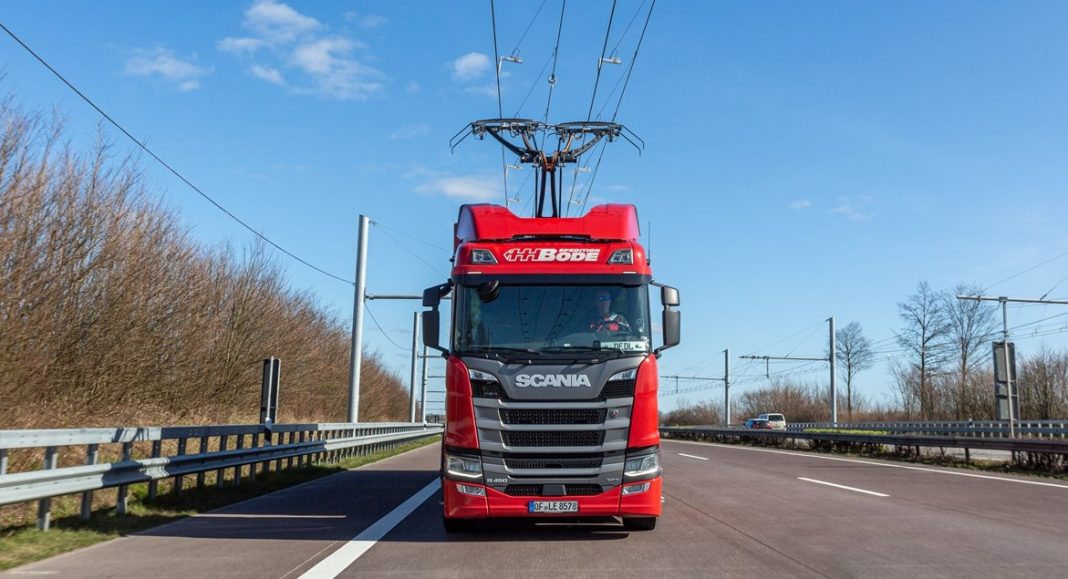A transport industry consortium has called for Government to back an electrification pilot on the M180 between Doncaster and the port of Immingham to show how the system could be rolled out nationally.
A new study by the Electric Road Consortium, made up of Costain, Siemens Mobility, and the Centre for Sustainable Road Freight, claims that a nationwide Electric Road System is likely to be the fastest and most efficient way to decarbonise the UK’s freight sector. An ERS would consist of overhead electrification wires over the inside lane of key motorways and a nationwide suite of static charging facilities. The Consortium is now urging the UK Government to fund an ERS pilot on sections of motorway in our region to show how an ERS could be rolled out across the country.
The Consortium has pinpointed the 41km stretch of the M180 connecting Doncaster to Immingham port as the ideal route to run the £100m pilot.
The group would start by electrifying two separate 10km stretches on the east bound carriageway of the M180. These could be built simultaneously, meaning, once it gets the green light, the pilot could be up and running within two years.
The pilot would use a combination of overhead wires, similar to trams and trolleybuses, connected to specially-designed battery-electric hybrid trucks which can automatically attach and detach themselves from the wires as needed. This dynamic charging system would be coupled with static battery chargers placed at strategic points across the network, such as depots and logistics hubs, to be used by the trucks as required. In addition to the system providing the hybrid trucks with electricity, it could be used by all other HGVs with electric drive systems, such as hydrogen fuel cell hybrid trucks, and could further help develop alternatives.
The UK has pledged to reduce carbon emissions by 78% by 2035 and the Government has committed to banning the sale of new diesel lorries from 2040. Decarbonising heavy goods vehicles (HGVs) therefore needs to be addressed urgently if the country is to meet these net zero targets.
The findings of the Consortium’s nine-month study indicate that an ERS will present the lowest carbon and most energy efficient option to decarbonise freight, as well as being the fastest way to reduce emissions. The Consortium estimates that a national ERS rollout would remove approximately 5% of the UK’s total greenhouse gas emissions. Compared with a hydrogen-powered HGV, an ERS-powered truck would require three times less energy. ERS is also expected to be the most resource-efficient choice, with the lowest impacts on the natural environment.



